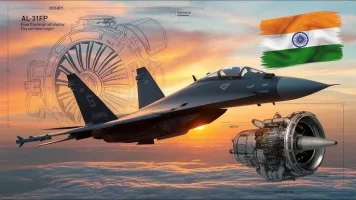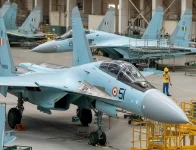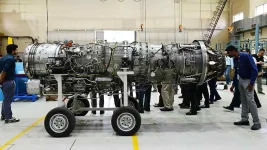- Views: 744
- Replies: 1

Hindustan Aeronautics Limited (HAL), the cornerstone of India’s aerospace industry, is on the cusp of a major transformation. The Indian government is considering elevating HAL's status from “Navratna” to the prestigious “Maharatna” category. This move is expected to significantly enhance HAL’s operational autonomy and financial capabilities.
The proposed upgrade to Maharatna status would grant HAL greater flexibility in its capital expenditures, allowing it to make substantial investments in new purchases or replacements without requiring government approval. This increased autonomy is particularly crucial for HAL’s Research and Development (R&D) initiatives, including the development of the cutting-edge Manned-Unmanned Teaming (MUM-T) drone technology.
MUM-T technology involves the seamless coordination of manned and unmanned aerial vehicles, opening up new possibilities in areas such as surveillance, reconnaissance, and combat operations. With the Maharatna status, HAL will have the financial freedom to accelerate the development and deployment of this groundbreaking technology.
Currently, as a Navratna company, HAL's investment limit for a single project without government approval is capped at Rs 1,000 crore. The Maharatna status would remove this ceiling, providing HAL with greater financial independence and agility in pursuing ambitious R&D projects.
The anticipated upgrade is also expected to boost HAL's overall operational efficiency and competitiveness, enabling it to play a more significant role in India’s rapidly growing aerospace sector. By securing Maharatna status, HAL would join the ranks of elite central public sector enterprises, including Indian Oil Corporation, Bharat Heavy Electricals Limited, and Steel Authority of India Limited.
To be eligible for Maharatna status, a company must meet stringent financial criteria, including an average turnover of over Rs 25,000 crore, an average annual net worth of more than Rs 15,000 crore, and an average annual net profit of over Rs 5,000 crore over the last three years.
The move to grant HAL Maharatna status reflects the government’s confidence in the company’s capabilities and its commitment to strengthening India’s aerospace and defence industries. This upgrade is poised to empower HAL to take on larger projects, pursue cutting-edge research and development, and contribute even more significantly to India's self-reliance in the aerospace sector.




